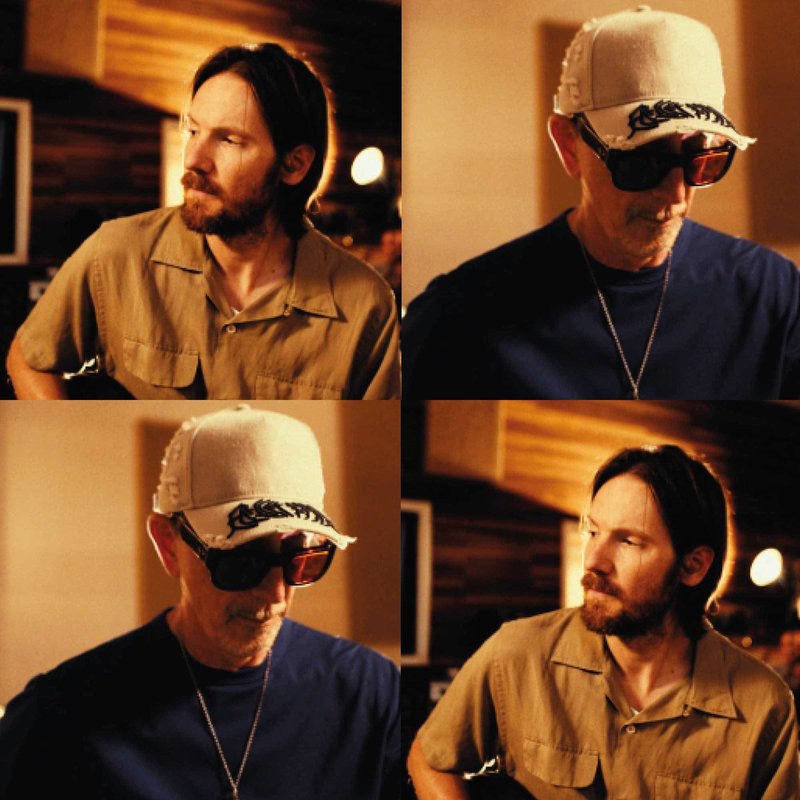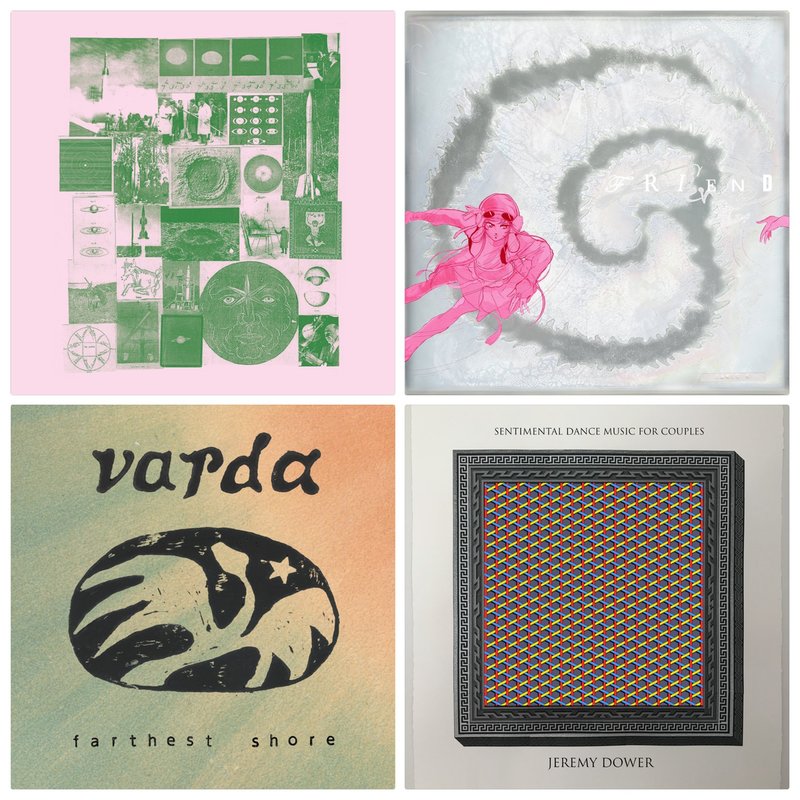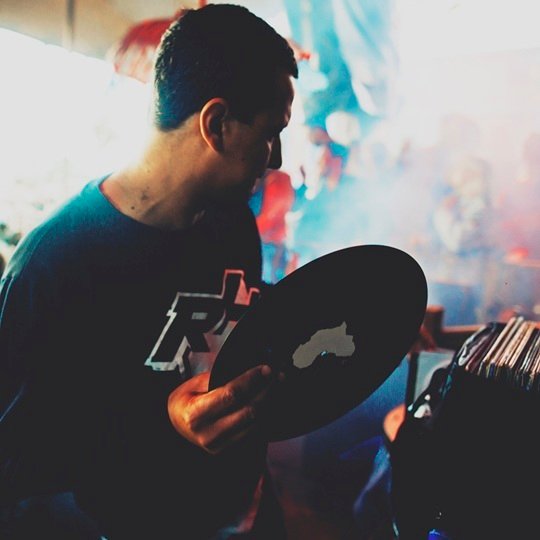
Antal Heitlager co-founded Amsterdam institution, Rush Hour almost 30 years ago. As a shop and label it has been a standard bearer for quality music ever since. Antal's DJ skills aren't to be sniffed at either, his travels and gigs provide inspiration for Rush Hour and create a virtuous circle of ideas, as he explained when we met recently....
Paul East: How are you? Nice to meet you.
Antal: Nice to meet you as well, Paul. I'm really good. I just came back from the United States. I just landed, so I'm a little jetlagged, but it's okay.
Paul East: Where were you?
Antal: I was in New York and Philadelphia. I had a nice weekend. I played the Making Time Festival in Philadelphia. And then I played the opening night of a new club in New York called Refuge. It's run by some classic people that have been doing stuff in New York for a long time, the sound system there is amazing.
Paul East: What did you play?
Antal: I played some house, a little bit of disco. I never know. I always prepare and then end up doing completely different things, but that has to do with the audience, how they respond. You put your first record on and then from there you just follow the audience, feeding off each other. In that, sense preparing is just like programming the brain. But what's going to happen on the night, I never really know. But I hope the whole thing went ok.
Paul East: Was there any track that went down really well?
Antal: The OJ's ‘I Love Music’, I have this Lafayette Afro Rock Band version that people don't seem to know. We were in Philadelphia, so I felt like playing that without it being cheesy, a kind of tribute. People recognized it obviously, but at the same time they were like "I don't know this version", these are the nice things about playing.
Paul East: I don't know that one either.
Antal: There's one pressing, a French one I think, that has that version of ‘I Love Music’ on it. Actually Tone Nimble in Chicago put me on to that. but yeah, these are these nice little finds.
Paul East: Did you get much time to look for records while you were there?
Antal: I always make sure I have time to look for records. Otherwise, it's a missed opportunity. I usually go a few days before a gig and stay a few days after. I went for six days, two days of gigs and then I had some days to just hang out. Especially in places like the States or Japan or whatever. When you go overseas, I want to stay a bit longer and enjoy it a little bit.
Paul East: Did you find any good digs while you were there?
Antal: I don't look so much for new stuff, but I mean if it's there then I go for it. But in this case, looking for American music. Be it jazz music, gospel music, soul, funk, house, and especially the older stuff because that's what you find in the record stores. Obviously, I have my own store here in Amsterdam specializing in new music. Plus new music is more digital, Bandcamp, all these places. But when I go into record stores, it's often for older stuff. But if they have something recent and it's great, then I'll pick that up as well, of course.
Paul East: Are you looking for things to sell in the shop?
Antal: We sell old records. So yes, it's gigs and digs when I go out, I try to make use of my time and my first aim is to find stuff that I don't know. But I’m always looking for music that can go in the shop. That's basically how I roll. It's a little hustle.
Paul East: Do you always travel with an empty suitcase then?
Antal: I go empty to a country and I come full! For me, I love vinyl. I love digging for records. I like to play records. But in this day and age, a lot is digital and not available on vinyl. So why would I limit myself? I don't see a reason for that. Last summer I played with Geology in New York and it was a vinyl only gig. And I do think it's a different thing, because it's a different technique and it's a different way of playing. Not everybody can do it. I do these gigs where I play longer sets and I only bring the records. But then there's also clubs where it doesn't really make sense to start playing records, because it’s not set up for it.
Paul East: Where do you enjoy playing most at the moment? Do you have a residency in Amsterdam at all or anything like that?
Antal: I don't really do a residency apart from three dates I do in Naples at the Basic club. They just announced that, it's kind of a residency for them because they don't bring the same DJ three times in a year and in my case now they do it, so they call that a residency. But in Amsterdam I have a few spots where I often play, but it's physically not possible to do a residency because I mostly play abroad. I try to go everywhere a few times a year. Be it London, Paris, Berlin, Amsterdam, New York, all these places. I'll go maybe three, four, five times a year.

Paul East: How do you split your time between the DJing, the label and the shop?
Antal: The good thing is at Rush Hour we have a really good team and I would say every position is occupied. So, I have my hands free. But I'm like the bassline. The operation is running and I sometimes put a little bit more energy into a certain direction. That's how it works. But Rush Hour is 28 years old now. It runs in a different way now, compared to when you had to do everything yourself. That’s how it started, in the early years. We did a lot of the stuff ourselves but it wouldn't be healthy if that was still the case 30 years later. How do I split my time? I have a really good team and that allows me to do the other stuff as well. The whole DJing thing is an important part of what we are doing, because it gives me a reason to travel, meet other people. It means we have a lot of ideas that come back to Rush Hour. I would say that works hand in hand.
Paul East: 28 years is a long time, I'm sure it's grown and changed in lots of ways.
Antal: I mean, we were super young when we started. I was about 19, I think. And around that time, we also opened the store. What’s really changed is the whole thing of music being digitised. All the options we have at the moment, like listening to music on YouTube, Spotify, all the digital portals, shazaming music and finding out, what a certain song is. The whole distribution of music nowadays is completely different to when we started.
When we began it was literally only records/CDs and maybe radio. I think music also moved more slowly, because you might buy a record or maybe the record was sold out. Then other people couldn't touch it until it was repressed, but sometimes it wasn't repressed, and then also the distribution obviously was super obscure. People couldn't go on Discogs to read about catalogues or stuff like that. Along the way that happened more and more. But I think that was quite a romantic period to discover things and find out about artists. Things were also held back for you in certain record shops, they didn't want other people to have certain records. So, it was also a game. That's actually why we started traveling, because we felt like in each city they treated the whole thing a bit differently. You would encounter different music, and that's also how our distribution network grew. But, I think that's the biggest difference. Things were slower and you couldn't really discover it very easily. You discovered it slowly.
Paul East: Is there anywhere you've traveled recently would you say has kind of surprised you? Maybe the scene wasn't what you were expecting or club you played at, or even records that you found?
Antal: I travel to certain spots more often, so it's not that the spots surprise me. But I do think it's surprising that after all these years, you can still really discover great music, that just never stops. And although sometimes it feels like you have reached something, then there's always something new. It never stops. It’s incredible and it's also worrying sometimes. Even after after all these years, there are still things to discover! I just discovered a Johnny Hammond track, and I'm like, okay, I'm 30 years in and only now I am finding out about this track, it's just crazy.
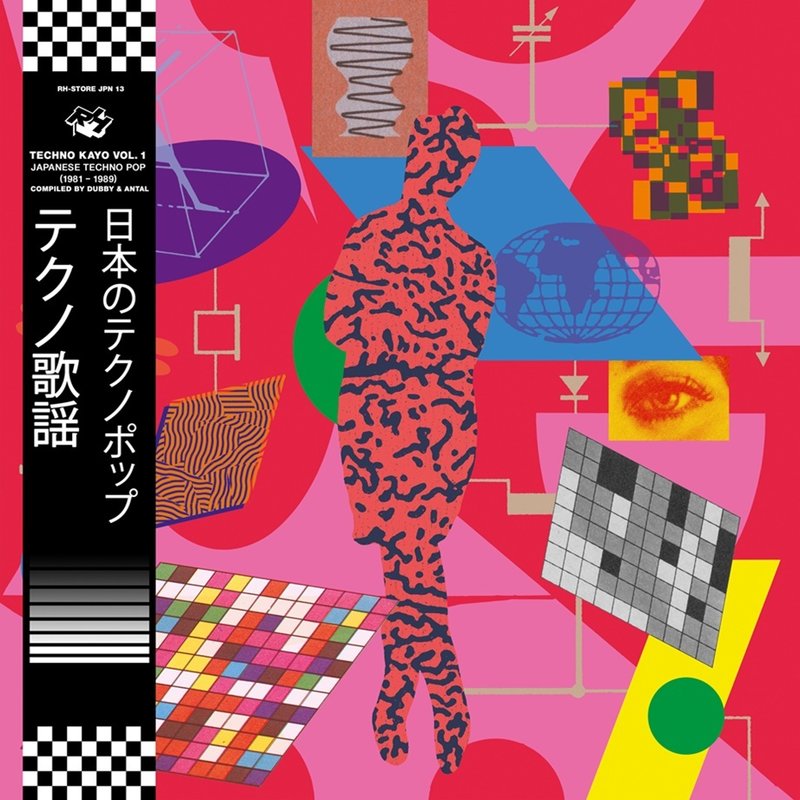
Paul East: This feels like a good moment to ask you about the new compilation, because that scene, genre, that was new to me. How did you come across it?
Antal: I've been traveling to Japan since the early 2000s. Slowly but surely each time I went back, I started to get more into Japanese music, intrigued by it and then slowly but surely you start to discover certain genres you might have not have known before. Light in the Attic, a few years ago did a compilation about environmental music, sort of Japanese ambient style music and then you have the city pop music which is coming more from funk and soul. It's a cleaner approach they have, and I've been digging into that.
Obviously there is Yellow Magic Orchestra. Sakamoto and Hosono are probably the most known Japanese artists outside of Japan from that group. They are often referred to as the Japanese Kraftwerk. Our crews knew them for the more electronic stuff they'd been doing that was also played in the Chicago house scene. ‘Firecracker’, that song from Yellow Magic Orchestra is probably the most well known but then also Merry Christmas Mr. Lawrence from Sakamoto…That's stuff that I've been following, but then every time when you go digging you go deeper and deeper and people point out stuff. Then you start to realize that there is a certain sound coming from the 80s that has quite a technological feel to it.
It has this poppy feel but it also brings in that electronic element. It started with Yellow Magic Orchestra and on from there. Constantly digging and discovering and finding new artists. Then at some point you find a certain genre or a certain movement or a certain period in time and you can kind of catch these things under the same umbrella. The name Techno Kayō is something that it was actually called in Japan, but previously I wasn't too familiar with the term itself.
We thought we'd like to do it with local people because they live it every day. Dubby is one, just like Chee Shimizu, who has been exporting or promoting Japanese music to the outside world for over a decade now, if not longer. We were in contact, then at some point I said “hey do you want to get involved in doing a compilation around this theme” and he was up for it.
Paul East: How did you meet him?
Antal: Through digging. He had a shop online and he was selling mostly stuff via his website outside of Japan. So we were already in touch over the internet. But one day I was in Japan and I met up with him and we went digging together. Once he came to Amsterdam to sell some records at the same fair we were at, we shared a table, things like that. It's always organic. That's how I like it. I want to work with people in an organic way. So, it's never really designed. It's just like things happen for a reason.
Paul East: Did you meet or connect with any of the artists on the album as well?
Antal: Not on this album. This is a selection mostly coming from Dubby. When you're trying to licence the music, the part where you end up working with labels or record companies and sometimes it's possible to eventually meet the artists. That's how it is most of the time. Especially with this music from the 80s, there were often bigger record companies behind it. So, it's not always easy to go directly to the artist, because at the end of the day, the recordings are owned by record companies. That's a lot different compared to, for instance, house music because that was way more of a do-it-yourself culture. Often these labels were set up by the artists themselves.
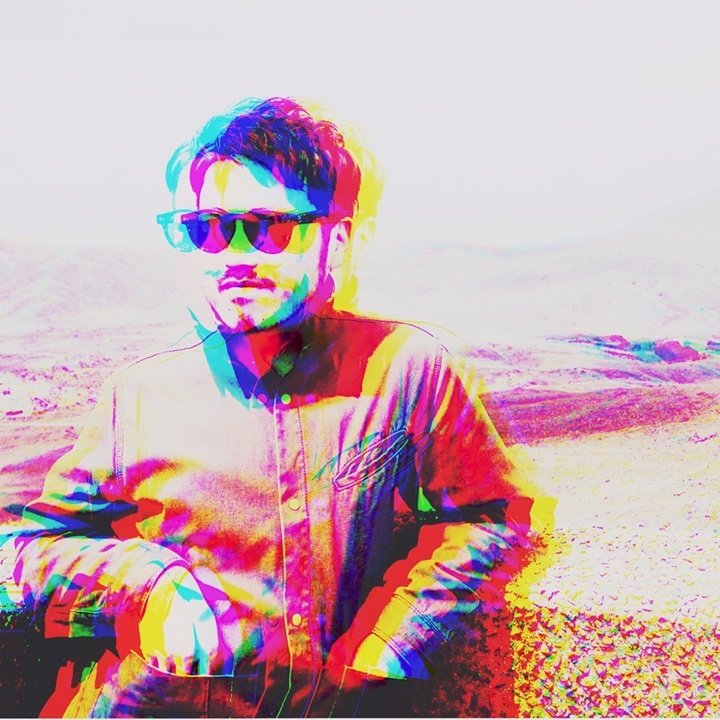
That’s how it was with Soichi Terada when we released his compilation in 2015. It was basically just an email to him direct and within half an hour there were a few gigs of music coming through WeTransfer! First there was communication like that, and then later we met. I mean, that's fantastic. That's really nice. He’s one of the friendliest people on the earth. It was funny because that compilation came together with my friend Hunee who suggested the idea. We were listening to his music and I reached out to him. He emailed back and the compilation was set up quite quickly. Then he sent through this photo where he has a big smile on his face, we just found that picture was so iconic. Orpheu, who used to do Red Light Radio and DJs now. He's from Amsterdam, he did the artwork. He just put this photo on the cover. In the beginning, I was a little bit like, "I probably could have done that myself", but the fact that he put the photo on the cover was actually a brilliant move, because this is actually who this person really is.
We were doing a Rush Hour tour in Japan, and we had one show in Kobe and the distributor there said “Hey shall we bring Soichi for a live show?”. So we said yeah that's a great idea. Soichi did a live show and that's where we met for the first time. I had no idea how that would go, but seeing him perform and the joy he expresses, how happy he was, and how sweet he is as a person. Just the whole thing together and how people reacted to it was so overwhelming. I was like, “wow this is something special”. This guy is so special. Then our agency, Octopus, they booked him for four shows. He did one in the Panorama Bar, then one at Concrete in Paris, Corsica Studios in London, and one in Amsterdam during the dance event. That kicked off a whole new part of his career. When I first spoke to him, he was still doing game music, and he was not involved in house music anymore, but when he started touring he was received so well that immediately other places wanted to have shows with him. He's been touring since 2015 and still going strong.
Paul East: I think saw a video of him, maybe it was in Croatia this summer…
Antal: He's such a sweet person. It's fantastic. And there's no ego, nothing. It's just him and the music. He completely personifies it. And yeah, I think people feel that, that's why people love him and that's why he keeps on going.
Paul East: You've got the compilation that's coming out very soon…what's next?
Antal: We have a whole bunch of 12 inches coming up. We just released the Arp Frique album, a local artist, with a half American, half Dutch gospel band. Ron Trent ‘Lift Off’ of course. Joe Clausell did a remix for Arp Frique on a song called ‘Save Your Soul’, that's about to be released. We have a release from Format, Orlando Voorn, a Dutch techno producer who was among the first to go to Detroit and work with local artists in the late 80s. He lives in the States now. We have a new record by Boo Williams coming up. New music from Gigi Testa from Naples…..
Paul East: So, not very not much then(!)
Antal: No, just a few things. And There's way more. Hu Vibrational, which is a bit of an ambientish album. I mean, that's what we do…! Work with people and release music. I'm very happy with how the compilation came out. Especially the artwork, because when you do a compilation like this, you want to give it a face. It has to be with respect for where it's coming from, but it also has line up with our vision too. We work with an artist named Johann Kauth from Denmark. He's been doing all of our artwork for a long time, but he really nailed this one. I hope people enjoy this and will go and discover a bit more once they've listened to it. If you like it, then there's more to be discovered and maybe people will do that for themselves as well.
Paul East: I don’t think you've ever lost any of the quality, it’s never dropped, the focus and the passion for the music is just there. It's so obvious.
Antal: That's good to hear, that you perceive it like that. I mean there's been so many moments where we could have done it differently, but I don't think I could ever stand by something that I don't believe in. I wouldn't last, so there's only one way. How we want to do it. I feel we've reached a certain critical mass and from now on we can just go with it.
Techno Kayo is available via Rush Hour on 20 October

